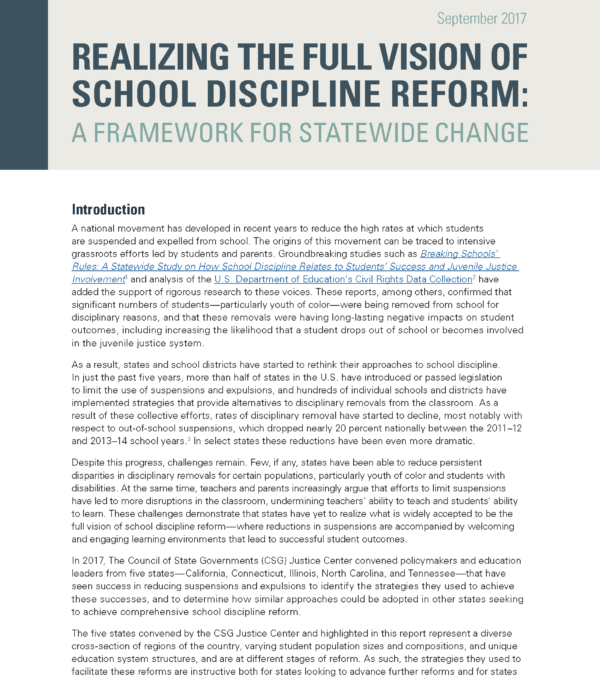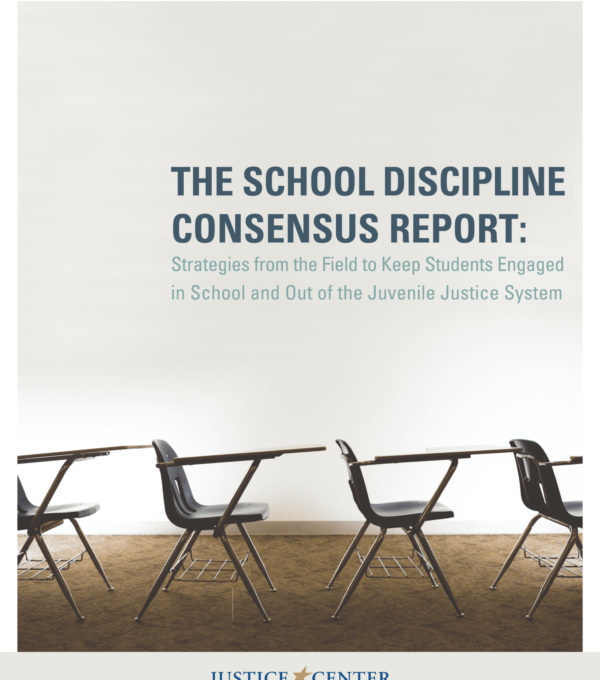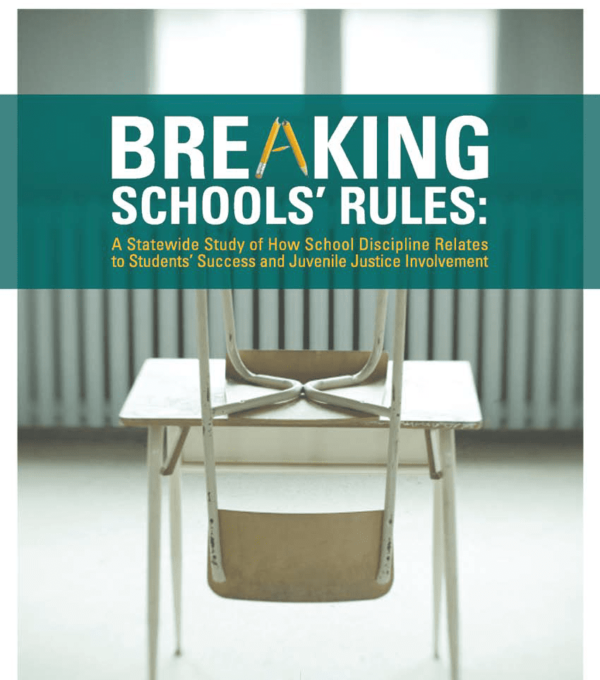Improving School Discipline in School Systems
Suspensions dropped 20 percent nationally between 2011 and 2014, according to the U.S. Department of Education, and in many states the reductions were even more dramatic. Despite this progress, states have struggled to reduce disparities in the use of school discipline for youth of color, and educators and parents have pushed back against school discipline reforms, arguing that efforts to limit suspensions have led to more disruptions in the classroom.
In 2017, the CSG Justice Center released Realizing the Full Vision of School Discipline Reform: A Framework for Statewide Change. Funded by the Open Society Foundations, this report documents how five states have reduced their reliance on harmful school discipline practices and provides recommendations to support policymakers and education leaders to take the critical steps needed to move toward a more comprehensive vision of school discipline reform—one that ensures efforts to limit disciplinary removals also foster supportive learning environments that keep all students engaged in school and improve student outcomes.
Previously, to help states and local school districts reduce the use of exclusionary discipline, the CSG Justice Center launched a national consensus-building project that convened experts in fields such as school safety, behavioral health, education, juvenile justice, social services, law enforcement, and child welfare. Youth, parents, and community partners also played a critical and active role in the project. The resulting School Discipline Consensus Report provides policy and practice recommendations and implementation guidance to minimize the dependence on suspensions and expulsions to manage student behavior, improve students’ academic outcomes, reduce their involvement in the juvenile justice system, and promote safe and productive learning environments.
In 2011, the CSG Justice Center, in partnership with the Public Policy Research Institute at Texas A&M University, released Breaking Schools’ Rules, an unprecedented statewide study of nearly 1 million Texas public secondary school students. Funded by The Atlantic Philanthropies and the Open Society Foundations, the study found that the majority of students were suspended or expelled at least once between seventh to twelfth grade. When students are removed from the classroom as a disciplinary measure, the odds increase dramatically that the student will repeat a grade, drop out, or become involved in the juvenile justice system. These negative consequences disproportionately affect children of color as well as students with special needs.
A positive school experience, where a child feels secure, is essential for their well-being. However, for many children…
Read MoreWhen returning to their communities from criminal justice settings, people with behavioral health needs face barriers in accessing…
Read More Supporting Children of Incarcerated Parents: Reimagining School and Community Collaboration
Supporting Children of Incarcerated Parents: Reimagining School and Community Collaboration
A positive school experience, where a child feels secure, is essential for their well-being. However, for many children with incarcerated parents—one in 14 in the U.S.—school can feel far from safe due to stigma, trauma, and a lack of understanding.
Read More Assigned to the Cloud Crew: The National Incarceration Association’s Hybrid Case Management for People with Behavioral Health Needs
Assigned to the Cloud Crew: The National Incarceration Association’s Hybrid Case Management for People with Behavioral Health Needs
When returning to their communities from criminal justice settings, people with behavioral health needs face barriers in accessing basic needs—including food, housing, employment, transportation, education, clothing, and substance use and mental health services—which increases their risk of experiencing a crisis.
Read More Meet the Medicaid and Corrections Policy Academy Mentor States
Meet the Medicaid and Corrections Policy Academy Mentor States
New Hampshire Department of Corrections Commissioner Helen Hanks presents at the Medicaid and Corrections Policy Academy in-person meeting.
Read More Taking the HEAT Out of Campus Crises: A Proactive Approach to College Safety
Taking the HEAT Out of Campus Crises: A Proactive Approach to College Safety
The sharp rise in school shootings over the past 25 years has led school officials across the U.S. to take a closer look at ways to keep students safe. For Chaffey College in Rancho Cucamonga, California, a tragic incident at a nearby university hit close to home and spurred campus leaders to revisit their own school’s threat assessments and crisis responses.
Read More New Smart Supervision Resident Analyst Program to Increase Supervision Agencies’ Data Analysis Capacity
New Smart Supervision Resident Analyst Program to Increase Supervision Agencies’ Data Analysis Capacity
Ideally, leaders would have actionable data readily available to them when they need it most. However, many agencies encounter significant challenges related to procuring accurate, consistent, and timely data, often grappling with outdated systems and inadequate tools.
Read More













